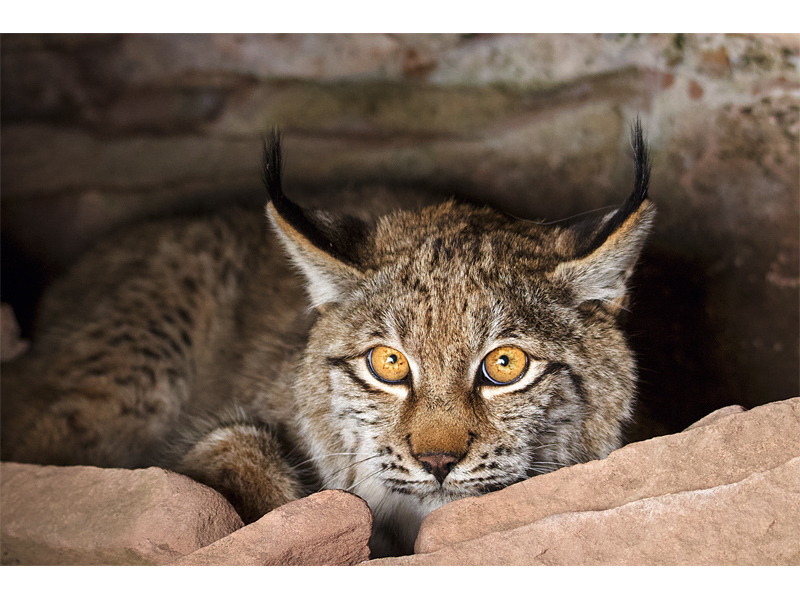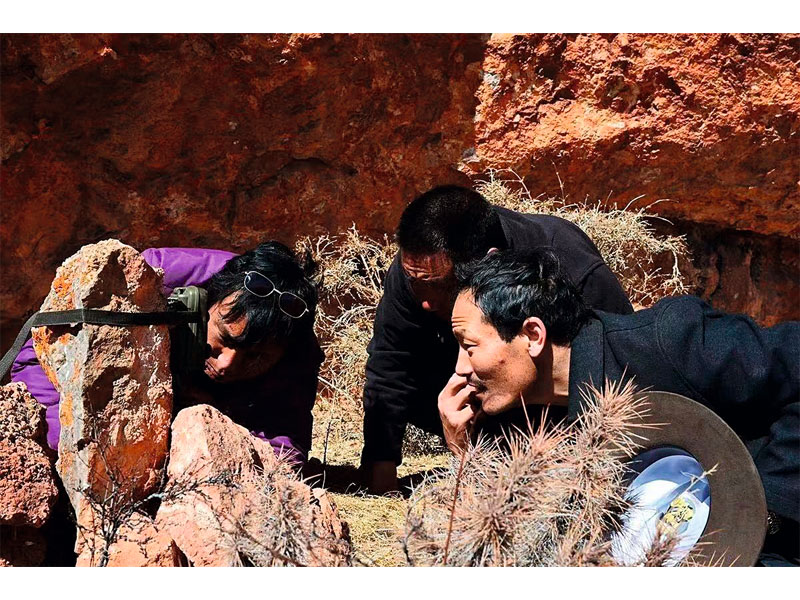Into the “Valley of the Cats”

“Snow leopard” tend to be the most exhilarating words spoken in Angsai Canyon. Even for those who have endured the fatigue of long-distance travel, the weariness caused by sleeplessness on cold nights, and the oxygen deprivation of altitudes above 4,500 meters, every discomfort vanishes upon hearing the animal referenced.

(Photo courtesy of Wild China Film)
Angsai Township is located in southeastern Zadoi County, Yushu Tibetan Autonomous Prefecture, Qinghai Province. It falls under the domain of the Lancang River Source Area of the Sanjiangyuan National Park. Renowned as the “hometown of snow leopards,” it boasts the highest density of snow leopard populations in the world. Additionally, it is a rarity for snow leopards and clouded leopards to coexist. Angsai is also a habitat for other wild felines including lynxes and pallas’s cats. This remote wilderness has earned itself the affectionate nickname “Valley of the Cats.”
Experiencing Nature
The nature experience project in the “Valley of the Cats” was jointly launched by the Administrative Committee of the Lancang River Source Area of the Sanjiangyuan National Park, the Shan Shui Conservation Center (a non-profit organization), and local pastoral cooperatives. It is a unique endeavor in which local herders have taken the roles of guides, drivers, and host families for visiting travelers. The trip begins and ends at Yushu Airport in Batang Town. Pre-approved participants are guided on an immersive journey through experiencing natural landscapes, wildlife observation, and pastoral lifestyles. In 2019, the project was authorized by the Sanjiangyuan National Park, marking the official commencement of its pilot franchise operation.
The ecological experience in Angsai starkly contrasts conventional tourism because it lacks a one-size-fits-all model that can be easily replicated. The project places a strong emphasis on maintaining a delicate balance between ecological preservation and economic development while gradually clarifying the responsibilities and obligations of enterprises, communities, and local governments involved in the franchise operation. The ultimate goal is to establish an effective approach that fosters harmonious coexistence between humans and nature.

(Photo courtesy of Shan Shui Conservation Center)
Franchise operation has produced myriad benefits. According to the agreed-upon revenue distribution, 45 percent of the proceeds from Angsai’s nature experience project go directly to the host families method, 45 percent is allocated to public spending of local communities, and the remaining 10 percent is dedicated to the wildlife conservation fund. “Over the years, we have utilized the conservation fund many times to rescue injured wild animals,” reported Tsewang Dorje, mayor of Angsai.
Tsering Nyima hails from a host family involved in the franchise operation and serves as an ecological caretaker. “All the visitors I’ve hosted consider Angsai an incredible destination, and many express a desire to return,” he said. He believes that revenue sharing from the franchise operation will become the main source of income for his family.
“As the local people gradually realizes the allure of their hometown and the host families benefit from ecological dividends, they gain a deeper appreciation for the significance of ecological conservation,” said Tashi Dongdre, director of the Standing Committee of the People’s Congress of Zadoi County and deputy head of the Leadership Group for the Construction of Sanjiangyuan Angsai Snow Leopard Town. “Simultaneously, the nature experience participants get to tangibly feel the positive outcomes of local ecological preservation. The concept of ‘harmonious coexistence between humans and nature’ becomes deeply ingrained through the franchise operation and becomes far more meaningful than mere monetary gains.”
Coexistence of Humans and Cats
Franchise operation is also driving research on biodiversity conservation. In addition to promoting eco-tourism, Angsai’s natural experience project also involves monitoring of wild snow leopards. Currently, a monitoring network, led by the government with involvement from local communities and participation from various social organizations, is gradually taking shape in Angsai. So far, the township has identified approximately 100 individual snow leopards.
Franchise operation has also received high praise from visitors. “China’s national park development emphasizes putting ecological conservation first and serving the greater public good,” said Zhao Xiang, wildlife conservation director at the Shan Shui Conservation Center. “Over the past five years, we have hosted 590 nature experience visitors including over a hundred from abroad.”
Dan Brown, a British ornithologist who has visited Angsai, raved about his time there, calling it truly beyond expectations. After witnessing the harmonious coexistence and mutual flourishing of humans and wildlife in Angsai, Brown commented that the successful implementation of the project serves as a powerful testament to the harmonious relationship between humans and wildlife, making it an exemplary ecological initiative.
“Feedback shows that the average satisfaction rate of project participants exceeds 90 percent,” said Zhao Xiang. “The lives of local herders have also undergone gradual changes. Many hardly spoke Mandarin and focused only on herding, but now they can pick up a camera and discuss ecology and photography with outsiders. The distinctiveness of the franchise operation project has brought significant transformations to these herders.”
By prioritizing ecological conservation, franchise operation strives to achieve ecological appreciation, boost incomes in local communities, and sustainably unlock ecological dividends at the same time. Angsai plans to continue implementing a strict admission system and reservation policy for the project’s operation in the future. They will offer immersive and personalized ecological recreational experiences in limited quantities, at certain times, and in specific areas to foster active participation from local communities.
“Angsai’s story may not provide all the answers to the complex challenges of economic development and ecological conservation in this era, but it does offer a glimmer of confidence and hope,” said Zhao. “Despite the almost irreversible forces of marketization and climate change, humans and nature can still coexist harmoniously. Perhaps this is the most remarkable gift that Angsai can bestow upon this generation.”